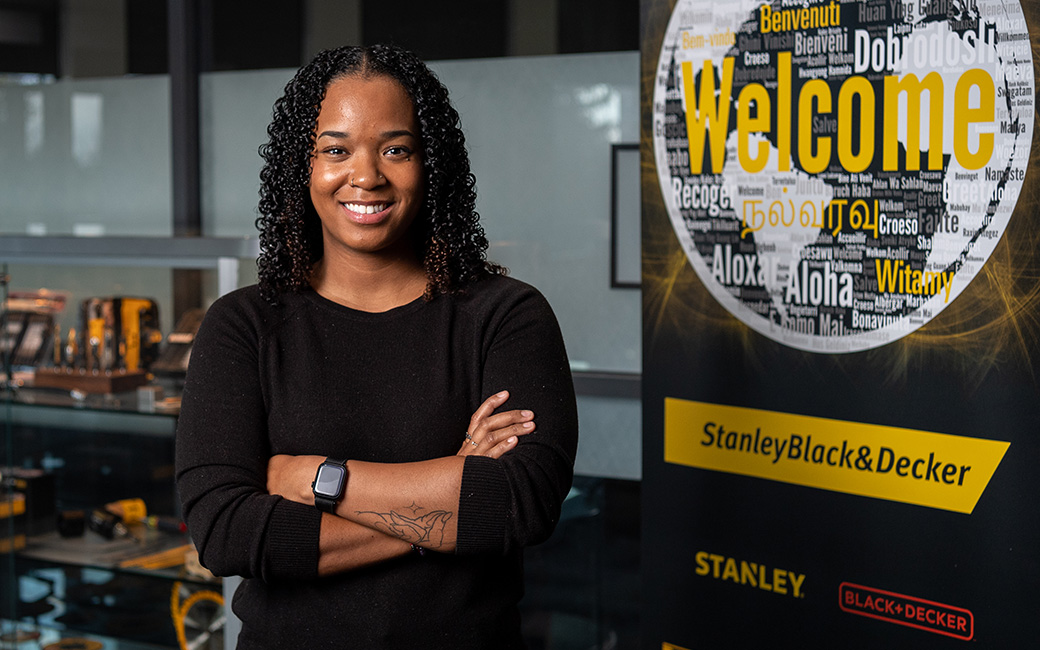Data-based Strategies for Real World Challenges
One of the key take-aways for Allison Haynes ’23 from the master’s program in human resource development has been learning how to “agree to disagree.”

“It is particularly challenging for an HR (human resources) professional when you disagree with an employee, but must still look out for their best interests,” admits Haynes, who began working full time in HR almost four years ago at Stanley Black & Decker, Inc.
Most recently, she is a human resources manager for the company’s Electrification Group, which looks at ways to electrify products across brands such as Black+Decker and DeWalt.
Haynes works closely with the businesses’ leadership teams, participates in strategy sessions, reviews processes, and ensures employees are taken care of.
“The profession is moving toward a data-oriented space,” says Haynes, who just received approval to move forward with an analytics initiative for her client group. “Data helps you make better decisions and forecast the future. Data forces you to rethink information and get creative in how you use it.”
“ The [human resources] profession is moving toward a data-oriented space. ”
Haynes recalls the guidance each of her TU professors has provided. “I am very vocal and speak up in class about my work experiences. My professors always stop and talk about the issues,” says Haynes. “They teach in an applied way that is very well-conceived; the topics are so timely it is scary.”
Haynes’ primary career objective is to have a positive impact in the workplace. “Every HR professional should remember employees are human beings first—they are parents, caretakers, and people with other obligations. The work will be here. They must take care of themselves.”
She notes that diversity and inclusion initiatives are changing how people view themselves and others. “This master’s degree program has helped me appreciate different perspectives and to be an effective decision maker,” she says.